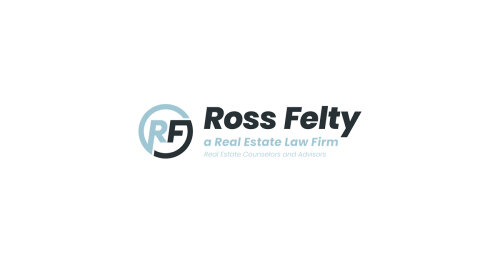Best Agriculture Lawyers in Florida
Share your needs with us, get contacted by law firms.
Free. Takes 2 min.
Or refine your search by selecting a city:
List of the best lawyers in Florida, United States
About Agriculture Law in Florida, United States
Florida is renowned for its rich agricultural heritage and diverse agricultural operations. The state’s warm climate and fertile soils make it ideal for producing citrus, sugarcane, vegetables, tomatoes, strawberries, ornamental plants, and a wide variety of other crops. Florida is also home to cattle ranching, aquaculture, and a vibrant nursery industry. Agriculture is one of the largest sectors in Florida's economy, employing thousands of people and contributing billions of dollars annually. With such economic significance, Florida’s agriculture is shaped and regulated by an intricate web of local, state, and federal laws.
Why You May Need a Lawyer
Many people interacting with agriculture in Florida find themselves facing legal challenges at some point. Common situations where legal advice is necessary include:
- Buying or leasing farmland or agricultural property
- Drafting or reviewing contracts for crop sales, livestock, or equipment
- Resolving disputes over land use, water rights, or boundary lines
- Navigating compliance with environmental regulations and agricultural permits
- Dealing with farm labor issues, including employment law and worker safety
- Defending against claims of pesticide misuse or agricultural contamination
- Addressing tax issues unique to agricultural operations
- Applying for government grants, loans, or agricultural subsidies
- Protecting intellectual property such as plant patents or trademarks on agricultural products
- Handling matters of succession planning for family farms
Agriculture law can be complex because it covers property, contracts, health and safety, business, tax, and environmental law, among other areas. An experienced attorney can help you understand your rights and obligations and avoid costly mistakes.
Local Laws Overview
Several laws and regulations at the state and local level affect agriculture in Florida:
- Florida Right to Farm Act: This key legislation protects farms from nuisance lawsuits, especially when residential development encroaches on agricultural land. As long as a farm uses generally accepted agricultural practices and was present before nearby changes in land use, it is shielded from certain legal claims.
- Water Rights and Management: Florida’s agricultural production depends heavily on water usage. The state allocates water rights and enforces regulations on irrigation, drainage, and conservation through regional water management districts. Special permits are often required for withdrawals.
- Land Use and Zoning: Local governments regulate how agricultural and rural lands may be used. Zoning rules can affect what types of farming activity are allowed, building of agricultural structures, and expansion of operations.
- Environmental Regulations: State agencies enforce regulations aimed at safeguarding wetlands, water bodies, and wildlife. These rules govern the use of pesticides, fertilizers, waste management, and runoff controls.
- Farm Labor Laws: Employers in agriculture must comply with both federal and state labor rules, covering wage requirements, housing standards, work conditions, and employment of minors and seasonal workers.
- Licensing and Registration: Farmers may need state licenses or permits for pesticides, nursery operations, selling certain crops, and participating in the greenbelt property tax assessment program.
These are only some of the major legal issues affecting Florida’s agricultural industry. Because laws are subject to frequent change, consulting with a knowledgeable attorney is recommended for any significant agricultural matter.
Frequently Asked Questions
What is the Florida Right to Farm Act?
The Florida Right to Farm Act provides protection to existing agricultural operations from certain nuisance lawsuits, typically filed by neighbors who claim that the farm’s sights, sounds, smells, or operations interfere with their enjoyment of their property. To qualify, the farm must use generally accepted agricultural practices and have existed before the neighboring land use change occurred.
How do water rights work for farms in Florida?
Florida allocates water rights through a regulated permitting system managed by regional water management districts. Most agricultural users need a permit to withdraw or divert surface or groundwater for irrigation or livestock. Restrictions may apply during drought or water shortages.
Do I need a special license to sell produce from my farm?
Depending on what you are selling and where, you may need a license from the Florida Department of Agriculture and Consumer Services. Specialty crops, livestock, nursery products, and processed goods often require specific permits or registrations.
How do Florida’s agricultural tax laws work?
Florida has a greenbelt law that allows qualified agricultural lands to be taxed at a lower value than non-agricultural land. Eligibility depends on the size, type, and use of the property. Owners must apply through the county property appraiser and meet ongoing requirements.
What are common labor law issues for Florida farms?
Farm owners must comply with rules covering minimum wage, overtime (in some cases), worker housing standards, safety practices, and reporting. Special rules apply to migrant and seasonal workers, as well as minors. Federal and state enforcement agencies monitor employer compliance.
Can I build new structures on my agricultural property?
Local zoning codes and building regulations dictate what structures can be built on agricultural land, such as barns, greenhouses, or packinghouses. Permits are typically required, and certain restrictions may apply, particularly in environmentally sensitive areas or flood zones.
How do environmental regulations affect Florida farmers?
Farmers must comply with rules controlling runoff, waste management, chemical application, and the protection of wetlands and endangered species. The Florida Department of Environmental Protection and other agencies can impose fines for violations.
What should I do if a neighbor claims my farm is causing a nuisance?
Review your compliance with local ordinances, the Right to Farm Act, and applicable best management practices. Document your activities and consult with an attorney to protect your rights and address the dispute properly.
How can I resolve a boundary or land use dispute?
Boundary disputes may require surveys, title research, or negotiation with neighboring landowners. Legal assistance is often necessary to navigate county records, litigation, or mediation.
Can I pass my farm to my children without significant taxes?
Estate planning for agricultural property is complex and may involve trusts, business structuring, and utilizing federal and state tax exemptions. An attorney experienced in agricultural succession planning can help minimize tax burdens and ensure a smooth transition.
Additional Resources
Several government agencies, organizations, and resources are available to help those involved in Florida agriculture:
- Florida Department of Agriculture and Consumer Services (FDACS) - oversees agricultural licensing, market development, and regulatory enforcement
- United States Department of Agriculture (USDA) - offers federal programs, disaster relief, loans, and technical assistance
- Florida Farm Bureau Federation - provides resources, advocacy, and legal guidance to members
- University of Florida IFAS Extension - delivers research-based information on agricultural, environmental, and legal topics
- Regional water management districts - regulate water permits and resource management for agricultural users
- Florida Department of Environmental Protection (FDEP) - covers environmental compliance and permitting for agriculture
- Legal Aid societies and local bar associations - may offer referrals to attorneys with agricultural law expertise
Next Steps
If you need legal assistance with an agricultural issue in Florida:
- Gather any relevant documents, permits, contracts, correspondence, or notices related to your situation
- Define your goals and concerns, whether they relate to compliance, contracts, disputes, or planning
- Contact a qualified attorney who specializes in agricultural law in Florida or your specific legal issue
- Consult official agencies or organizations for additional information or guidance
- Act promptly if you have received notices, deadlines, or if legal action has been threatened or initiated
A knowledgeable legal professional can help protect your interests, guide you through complex regulations, and avoid problems before they arise. Being proactive and informed is the best approach when dealing with agricultural legal matters in Florida.
Lawzana helps you find the best lawyers and law firms in Florida through a curated and pre-screened list of qualified legal professionals. Our platform offers rankings and detailed profiles of attorneys and law firms, allowing you to compare based on practice areas, including Agriculture, experience, and client feedback.
Each profile includes a description of the firm's areas of practice, client reviews, team members and partners, year of establishment, spoken languages, office locations, contact information, social media presence, and any published articles or resources. Most firms on our platform speak English and are experienced in both local and international legal matters.
Get a quote from top-rated law firms in Florida, United States — quickly, securely, and without unnecessary hassle.
Disclaimer:
The information provided on this page is for general informational purposes only and does not constitute legal advice. While we strive to ensure the accuracy and relevance of the content, legal information may change over time, and interpretations of the law can vary. You should always consult with a qualified legal professional for advice specific to your situation.
We disclaim all liability for actions taken or not taken based on the content of this page. If you believe any information is incorrect or outdated, please contact us, and we will review and update it where appropriate.
Browse agriculture law firms by city in Florida
Refine your search by selecting a city.












